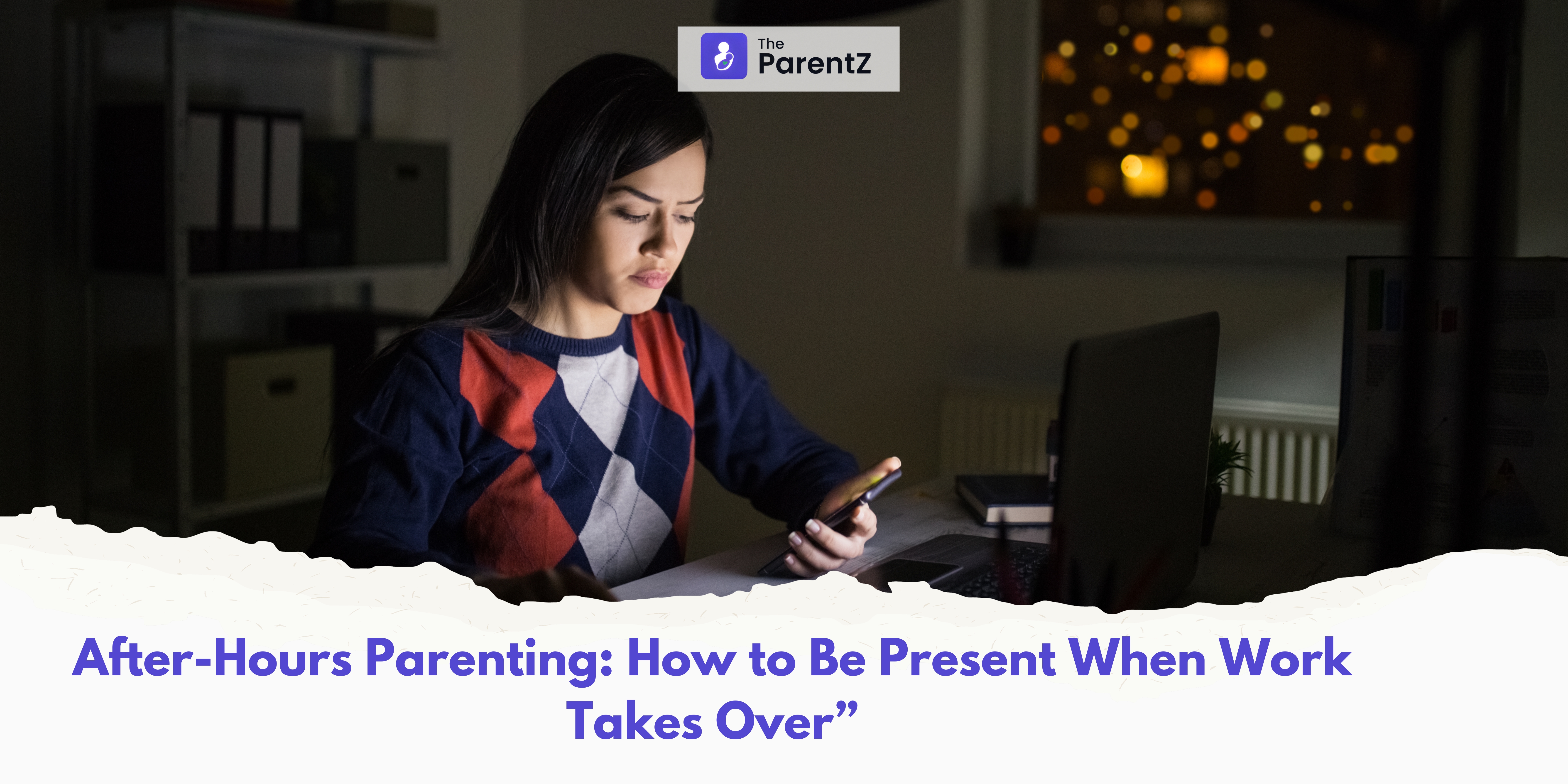Parenting in today’s fast-paced world is challenging, particularly when work responsibilities extend beyond the traditional 9-to-5 hours. Many parents find themselves struggling to balance professional demands with family life, especially when after-hours work creeps into their evenings and weekends. The digital age, with its constant notifications and remote work setups, has blurred the lines between work and home, making it harder to be fully present with your family. This article will explore strategies to manage after-hours work while staying engaged with your children, so you can maintain a healthy balance between your professional and personal lives.
The Importance of Being Present
Being "present" means more than just physically being with your children. It means engaging with them emotionally, giving them your full attention, and creating meaningful interactions. Children thrive on parental involvement, and their emotional and psychological development is positively influenced when parents are genuinely present. However, when work seeps into family time, it can create emotional distance and make children feel neglected, even if you're physically there.
Research has shown that the quality of time spent with children matters more than the quantity. So, even if your work takes over a significant portion of your day, making the time you do spend with your children meaningful is key. It's about engaging in activities that strengthen your bond and making them feel heard, valued, and loved.
Managing Work-Life Boundaries
One of the most important steps toward achieving work-life balance is setting clear boundaries between work and personal time. Here are some effective strategies to help you transition from work mode to family mode:
1. Designate a 'Work End' Ritual: Having a ritual to mark the end of your workday can help you mentally shift gears and signal to yourself (and your family) that you're ready to be present. This could be as simple as closing your laptop, turning off notifications, or stepping outside for a quick walk. These small actions act as a psychological break and allow you to decompress before diving into family time.
2. Establish Physical and Mental Boundaries: If possible, separate your workspace from your living space. Even if you're working remotely, try to work in a designated area that you can leave behind when the day is over. This creates a physical boundary between your professional and personal life. Mentally, try to leave work stress at work — difficult as it may be — so it doesn’t spill over into your family time.
3. Time Blocking: If after-hours work is unavoidable, practice time blocking. Allocate specific times for work tasks and family activities. For example, you might reserve 6–8 p.m. as family time and then return to work afterward if necessary. Stick to your schedule as closely as possible to prevent work from overtaking family moments.
Effective Communication
Open communication is essential when balancing after-hours work and parenting. Your children may not always understand why work takes priority at times, so it's important to communicate with them about your responsibilities. This transparency fosters trust and helps them feel more secure, knowing that you care about both your work and their well-being.
1. Talk to Your Kids: Explain to your children why you have to work and when you’ll be available to spend time with them. This helps manage their expectations and reassures them that while you may be busy at certain times, they remain a top priority.
2. Involve Your Kids: Involve your children in understanding what you do at work. For younger children, you can explain your job in simple terms, and for older children, you might even show them what you're working on. This not only fosters curiosity and learning but also allows them to feel connected to your work life, reducing feelings of neglect.
3. Set Expectations with Your Employer: Many employers are understanding when it comes to work-life balance, especially in today’s world of flexible work arrangements. If possible, communicate your family commitments to your employer and negotiate flexible hours that allow you to prioritize both work and family time.
Quality over Quantity
When you’re balancing a demanding job and parenting, it’s easy to feel guilty about not spending enough time with your children. However, it’s important to remember that quality matters more than quantity. When you are with your kids, make sure the time is meaningful and filled with positive interactions. Here are some ideas for maximizing the quality of your family time:
1. Create Engaging Routines: Create daily or weekly rituals that your children can look forward to, such as family game night, weekend outings, or bedtime stories. Even if these moments are brief, the consistency of these rituals strengthens your connection and creates cherished memories.
2. Be Fully Present: During family time, avoid distractions like checking your phone or answering emails. Make the most of the moments you have by being fully engaged. Listen actively to what your children are saying, and participate in their activities wholeheartedly, even if it’s something as simple as playing with toys or helping with homework.
3. Focus on Connection: Quality time can be as simple as sitting together and talking about your day. Ask your kids about their school, friends, or favorite activities, and share parts of your day with them too. These small conversations can deepen your relationship with your children, fostering trust and emotional closeness.
Quick Transition Tips for After-Work Parenting
It’s not always easy to switch from work mode to parent mode, especially when you’re stressed or tired. Here are some quick tips to help you transition from one role to the other smoothly:
1. Take a Moment for Yourself: Before engaging with your children after a long workday, take 5–10 minutes for a quick reset. Whether it’s stretching, deep breathing, or listening to a short podcast, a small personal moment can help you decompress and shift your mindset.
2. Change Your Environment: If possible, leave your home office or workspace and spend some time outdoors with your kids. A change in environment can refresh your mind and help you connect with your children more easily.
3. Practice Gratitude: At the end of a busy workday, it can be easy to carry over negative emotions into family time. Practice gratitude by focusing on the positive aspects of your life and appreciating the time you have with your children. This can help you approach after-hours parenting with a lighter, more positive mindset.
Balancing Flexibility and Structure
When work hours extend into family time, having a flexible yet structured approach can help you maintain balance. Flexibility allows you to adapt to changing work demands, while structure helps ensure that family time is protected. Consider the following tips:
1. Prioritize Family on Off-Days: On weekends or days when work is lighter, prioritize family activities and make up for lost time. Whether it’s a trip to the park or simply a movie night, dedicating time to reconnect will ensure that your kids feel valued and loved.
2. Use Technology to Your Advantage: Tools like shared family calendars can help you stay organized and allocate time for both work and family events. You can also use reminders and scheduling apps to balance after-hours work and personal time more effectively.
Conclusion
After-hours parenting is challenging, but it doesn’t have to come at the expense of your relationship with your children. By setting clear boundaries, communicating effectively, and making the time you do have with your kids meaningful, you can manage both work and parenting responsibilities successfully. Remember, being present is about the quality of your interactions, not just the quantity. With mindful time management and small, intentional changes to your routine, you can find the balance that works for you and your family.








Be the first one to comment on this story.